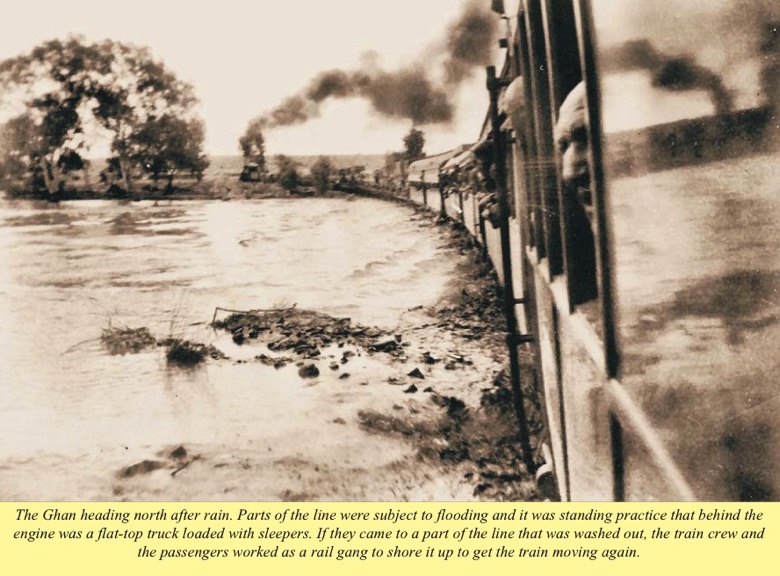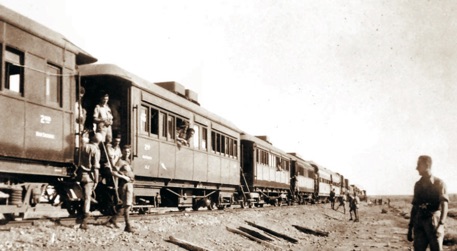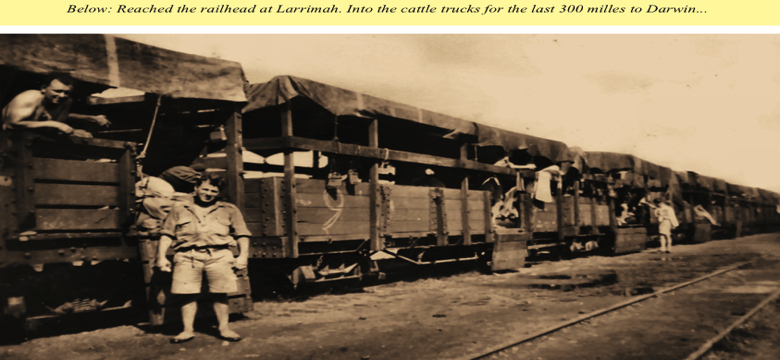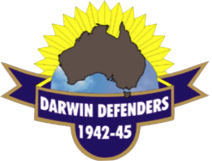A Salute for the Unsung Heroes...
The CWA, and The Ladies of Quorn
"360,000 meals supplied free for the servicemen in World War II"...
This report written (circa 1992) for the Quorn newspaper by Sylvia Kriven...
QUORN: In World War II Jane Wells would take a lantern to cross a field and light fires to heat food for hundreds of Australian diggers.
The fires were smoky and the ovens primitive, but that would not stop her cooking “something for the souls”.
Before the last shots were fired in World War II, Mrs Wells and 90 other women volunteers prepared 360,000 free meals for troops travelling through Quorn on troop trains to Darwin.
Fifty years later, more than 300 ex-service personnel, retired railway men and former residents returned to this picturesque. Flinders Ranges town to salute the hospitality of those who fought without guns.
Among activities planned for the two-day event were a re-enactment of a troop train pulling into Quorn and a meal for its passengers, served by modern-day volunteers.
“The saddest part of all of this celebration is that all but four of the women are gone,” Mrs Wells, 88, said yesterday.
“And we all worked together day in and day out.”
According to Quorn historian and author Mrs Maureen McColl, “thousands” of steam trains carrying troops, munitions, vehicles, weapons, wounded and prisoners of war passed through Quorn between 1939 and 1945.
“The men came from all over Australia,” she said“They would travel (from Adelaide) on broad-rail gauge to Terowie and then narrow-gauge to Quorn.
“At Quorn there’d be an hour or so wait while the trains were re-shunted for the trip to Alice Springs.
“As the war progressed and more and more trains were coming up and down and more people started to invite the soldiers in for a cup of tea, the CWA voted to set up stands to feed them.”
In September 1940, the army gave its official approval for the women to provide meals. From then, according to Mrs Wells, it was “sheer hard work”.
“We would do up to 300 meals in the morning, three days one week and then four days the next,” she said.
“It was always hot. Usually rissoles, mashed potato, pumpkin, tea, plum pudding and custard. I used to make three gallons of custard at a time.”
The army supplied ovens, eating utensils and even a refrigerator but the food was grown or paid for by the CWA and its affiliated branches around Australia.
Mrs Wells said one day’s supplies included a case of milk, a case of sauce, 5.4kg of butter, three cases of oranges, 58.9kg of sausage meat, a case of condensed milk, two cases of apples, a bag of potatoes, seven trombones, 40 loaves of bread “that had to be cut by hand” and five dozen eggs.
“We had a lot of fun and there are so many memories,” she said.



